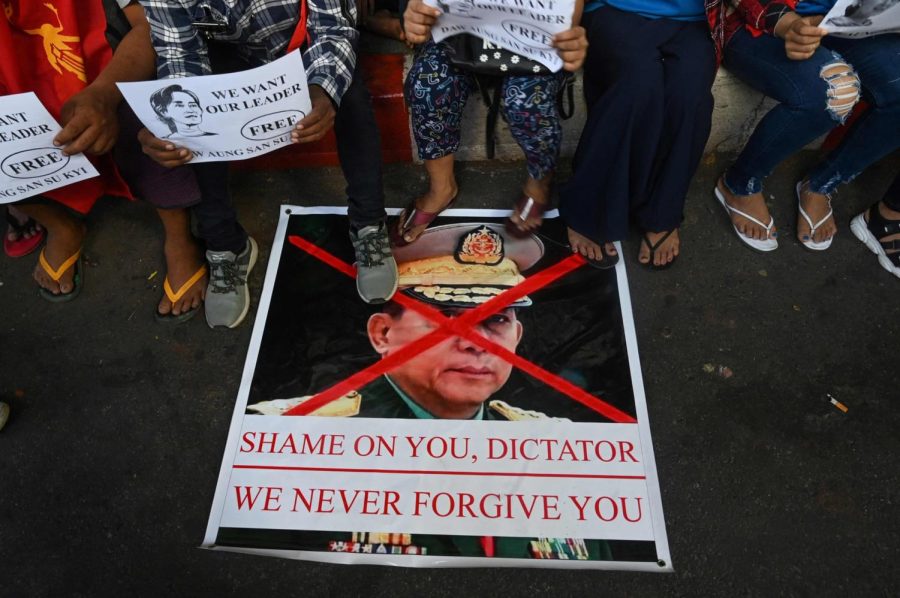The nation of Burma had ruled peacefully by the democratically-elected National League for Democracy until its military, the Tatmadaw, forcefully took over on Feb. 1, and since then, brutalized the people of Burma.
Despite major political and economic reforms that began in 2011, the military still took hold of Burma for reasons that can only be speculated, given that authority figures in the Tatmadaw—the Burmese military’s official name—have traditionally been reserved.
The only significant gain from this coup has been the restoration of its political command for individuals like senior general Min Aung Hlaing.
Not to mention the freedom to enact its will without anyone deciding against it, as evidenced by the killings that occurred in Kayah State in late Dec., where civilians attempted to flee from combat.
As well as the mistreatment of the Rohingya Muslim minority, which already has a history of abuse by the Burmese military.
What’s more, is that this stratocracy—a government ruled by military chiefs—can now utilize its newfound authority to diminish U.S. influence in the Indo-Pacific region while tension grows between China and Taiwan.
To clarify, Burma is India’s next-door neighbor, and the Government of the Russian Federation has all but shown its support for the regime as it continues to arm its military and conduct bilateral visits.
The same Russian government that is threatening war with the White House over Ukraine for greater authority in Europe.
That Burma is critical to India’s economic prosperity is not helpful, what with its location making it the center of the India-Southeast Asia sector.
However, if the Tatmadaw decides to abide by Moscow’s sentiments, then the U.S. will lose one of its most advantageous allies if an armed conflict occurs between Taiwan and China.
That being said, the U.S. should involve itself with the regime’s situation and eliminate the threat by taking military action and punishing those most responsible like Hlaing.
It would not only allow the White House a better opportunity to fulfill its loyalty to Taiwan but also end the strife caused by the Burmese military.
Having its largest trading Indo-Pacific Partner in commission to boot might prove useful in harassing the Russian troops from the east.
Nonetheless, it shouldn’t be said that having a war on two fronts would also increase the likelihood of the draft coming into play—and no one wants to be killed in a foreign nation by an opponent who has done you no personal wrong.
Ending the Burmese threat first is far less impactful than warring with an old Soviet nation, yet letting it grow stronger undisturbed could worsen an as of yet uncertain future.
This is not the type of concern that should fade away in another TikTok trend like most of today’s tragedies when civilian lives are at stake.










